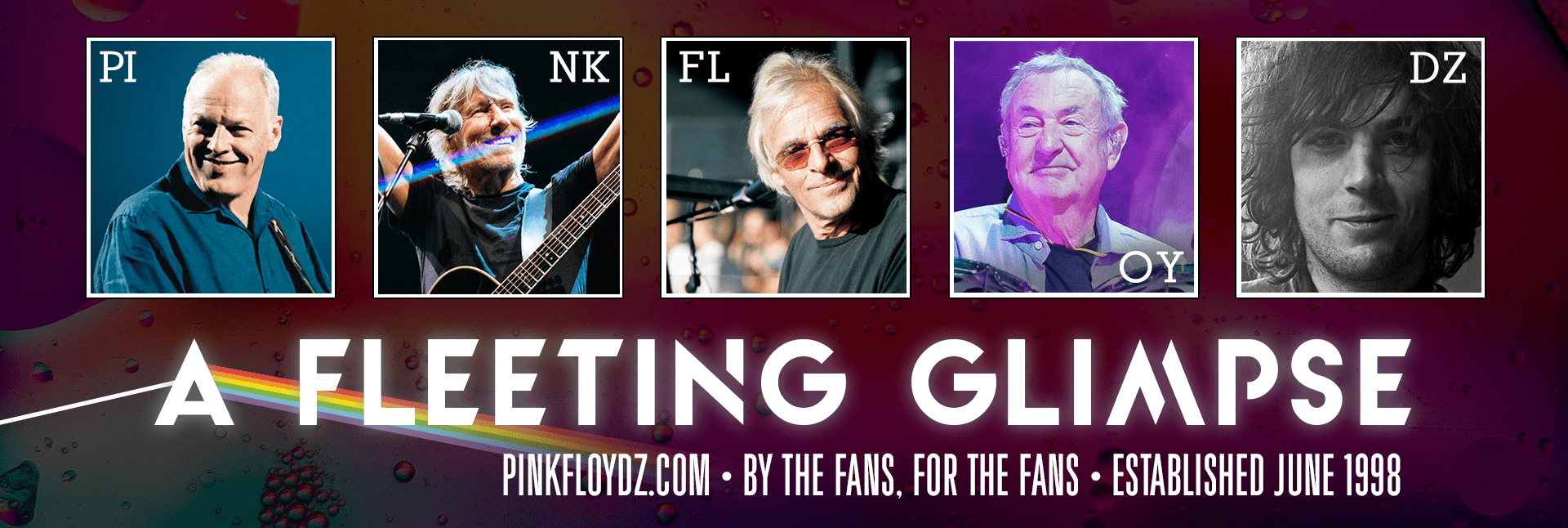From Circus Magazine 1978
Atom Heart Brother Floyd Guitarist David Gilmour’s First Solo LP Finds Him in the Pink By Shel Kagan
Guitarist David Gilmour may be Pink Floyd’s most closed-mouthed member ‹and they’re not a garrulous bunch to begin with). It is rumored that he sometimes goes for days on end without speaking to anyone, his mind lost in thought. Or maybe in space.
“I think he’s the most technically minded of the four,” says an admiring Alan Parsons, the studio whiz who produced the Floyd’s phenomenally successful Dark Side of the Moon‹a multi-platinum album that’s still on the charts five years after release. “He actually knows what’s going on technically inside the control room, and he would often come up with ideas of his own for production of a track. One instance was the cash register sounds for Money. Originally we were timing the beats with a click-track [a taped series of fingersnaps used to set a song’s meter]. But we weren’t getting it right. David came up with the idea of actually measuring out pieces of tape with a ruler.”
Parsons still marvels at Gilmour’s inspired precision. “David was very much a force behind the production of Dark Side of the Moon,” he attests.
Now the reclusive Gilmour has suddenly stepped out with a self-titled (and self-produced) first solo album on Columbia, and he’s even agreed to sit for an exclusive Circus interview. How come?
Well, it seems that after ten years together, the Floyds no longer hang out together when they’re not recording or on tour. “It’s necessarily a compromise to work in a group,” Gilmour observes. “A lot of people tend to cling together and say ‘we live for the group’ and at the beginning you need that. But later on you need other things.”
The other things, for him, have been outside projects like producing Syd Barrett’s second solo album (in 1970) and Kate Bush’s recent album from which her number-one British hit “Wuthering Heights,” was taken. “He was looking around for struggling young artists at the time,” says Kate, “and I happened to be one. He paid for a demo of two songs and took it round to Capitol and got it sold for me.”
“This album [David Gilmour] was important to me in terms of self respect. At first I didn’t think my name was big enough to carry it. Being in a group for so long can be a bit claustrophobic, and I needed to step out from behind Pink Floyd’s shadow.”
The planetary pulse beat that Floyd perfected on Dark Side of the Moon is present on Gilmour’s solo work; the earth seems to move beneath Willie Wilson’s drums. Gilmour handles guitar, keyboards and vocals, leaving the bass chores to Rick Wills, with whom he had worked before joining Floyd.
Listeners will find “Mihalis” a familiar Floydish extended musical essay, and “There’s No Way Out of Here” an example of the claustrophobia Gilmour says he experienced as part of a group. His guitar is soft though powerful‹and where Peter Townshend is playful, Keith Richards threatening and Clapton dazzling, Gilmour is the perfect gentleman on his instrument, offering hypnotically repetitious phrases that build simple riffs into something monumental.
The name Pink Floyd was derived, by original founder Syd Barrett, from the names of two legendary Georgia blues players, Pink Council and Floyd Anderson. Gilmour joined in 1968, replacing Barrett, whose psychedelic investigations had apparently rendered him incapable of continuing as a group member. From shakey beginnings, when he admitted he didn’t understand the group, and wasn’t sure he fitted in (Floyd has been described as “proud, pioneering and somewhat detached”), Gilmour has managed to take on these very qualities himself, since prior to joining the group his tastes had run to Chuck Berry and Bo Diddley. His family background is one of erudition ,his mother is a film editor and his father a professor of genetics at New York University. “They brain-drained him away when I was eighteen,” scowls Gilmour affectionately, referring to America’s tendency to attract England’s brightest minds with cash.
Gilmour lives in the London suburb of Essex, in a 60-year-old Tudor mansion, with wife Ginger and daughter Alice. He “noodles” constantly on the guitar at home, favoring Ovation guitars because of their indestructability. “They’re robust,” he notes, “and my daughter can kick them around.”
Performing live, particularly on electric guitar as opposed to acoustic, provides him “a primal sort of rush, which I’ve never gotten over. Something about the power of an electric guitar when it’s not out of control but it’s just about playing itself.”
In the studio he follows the same procedures as he does with Pink Floyd: basic rhythm tracks first, with guitar and voice overdubs later. He uses Superbear Studios, in Nice, France, because of a British tax rule that returns about a quarter of record royalties to a performer who records outside the country.
Gilmour has no plans to tour behind his own album, nor does Pink Floyd have concerts in mind. “We will expect to be in the studio sometime this winter,” says David, “and we’re writing all the time. But we’re not in any hurry to get on the road.”
